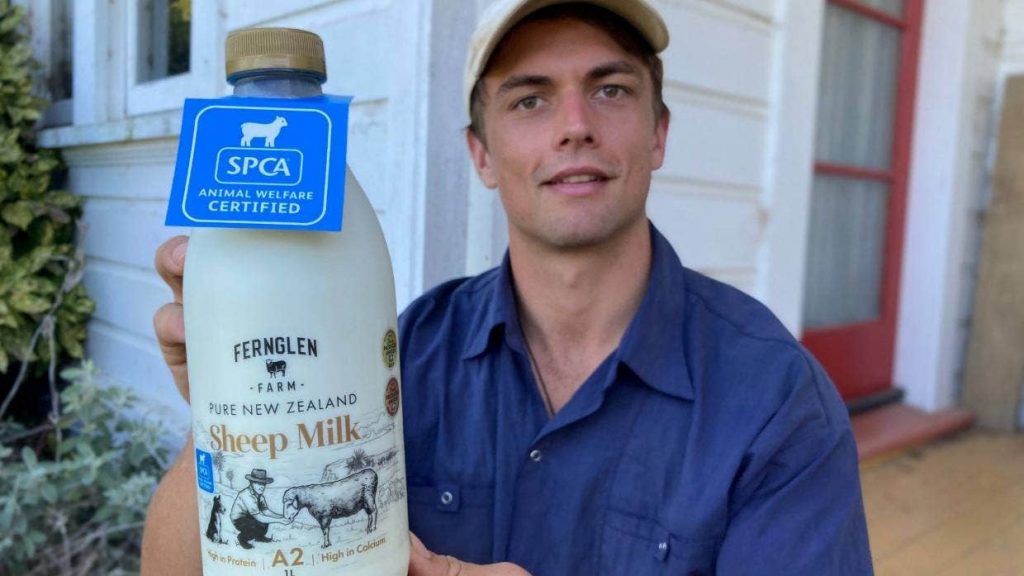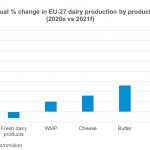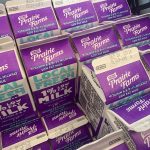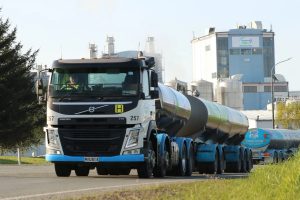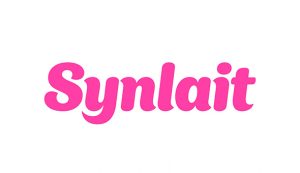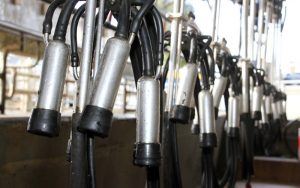
High-protein, flavoured sheep’s milk created by Fernglen Farms on Masterton’s east coast will soon be available on the shelves of Asian supermarkets.
The small dairy producer is set to become the first fresh sheep milk exporter of retail-ready products in the country, and it was also leading the dairy industry in animal welfare.
Originally a traditional sheep and beef operation run by Jeff and Shirley Ravenwood, more recently the 1100-hectare East Coast farm has branched out into sheep dairy production spearheaded by youngest son Cameron.
The first shipment of Fernglen Farm branded, ready-to-drink products was heading to Singapore in late May.
“We’ll be the only ones exporting fresh sheep milk in retail-ready form,” Cameron Ravenwood said.
It only took about three days for the product to get from the milking shed to the Asian supermarkets.
The first bulk shipment of Fernglen milk headed overseas last week for processing to be used as a pharmaceutical supplement.
A litre bottle sells for about $9 in New Zealand.
Ravenwood, 23, has a masters degree in agribusiness and food marketing and convinced his parents that their farm could lead the way with new products, highlighting ethical production.
He saw that other industries had SPCA animal welfare certification, but dairy was conspicuously absent.
Around two of years ago he approached the SPCA, and they have worked together to formulate the standards and audit processes for sheep dairy animal welfare certification.
Fernglen recently became the first farm of its kind to be accredited.
One of the biggest differences between how they run their milking operation that differed from most large scale cattle dairy farms was that they didn’t separate mother and babies at an early age.
They milked the ewes while the lamb was still with its mother, just taking the sheep’s surplus milk. This required drafting the lambs from the ewes before the once-daily milking, and then re-uniting them afterwards.
This approach made for a less stressful separation when the lambs were finally weaned, because they were used to being apart from their mothers for a period of the day.
The animals became so acclimatised to human contact that they were not stressed by their presence.
Other conditions of the SPCA’s newly-minted accreditation for sheep dairy covered general humane treatment of animals and high levels of animal husbandry with an extensive auditable checklist.
“It is about keeping your animals as healthy as possible and never letting them be in a stressful situation.”
This required making sure animals have adequate feed, shade, shelter, and veterinarian support.
SPCA certified farm animal welfare and standards manager Dr Rob Gregory said the aim of the programme was to celebrate good farming and to raise animal treatment above current legal requirements.
“In doing so, we hope to encourage others within the industry to follow suit and also to provide consumers with a trusted brand that they can choose, knowing that animal welfare is at the heart of the farming system.”
Ravenwood aimed to bring in other farms under the Fernglen brand as a way to get higher returns from their businesses.
He’s had his family’s support throughout the entire process of establishing the sheep milking business which he aimed to be a standalone company focussed on processing and marketing.
“They’ve made everything possible, and I wouldn’t have been able to do it without them.”
He said a big motivation was wanting to be known as a responsible farmer and enhance the average New Zealander’s impression of the industry.
“I’m really keen to make urban folk proud of farmers again.”
The animal welfare branding was also a good marketing device as another way to differentiate their products from the competition.
Their flavoured sheep’s milk range targeted customers who wanted a nutritional boost with A2 protein milk and something that tasted good.
As a premier grade rugby player, Ravenwood first tested his products on his Shirley Rugby Club teammates while at university in Canterbury.
What does it taste like?
The sheep milk produced by Fernglen is more similar to full-cream cow milk than it’s genetically closer sibling in goats’ milk.
Moore Wilson supermarket Masterton fresh department supervisor Elly Johnston described it this way: “It’s creamier than the blue [regular cow’s milk]. It tastes really nice. I’ve had goat’s milk before and this doesn’t taste like goat’s milk, which can be quite strong and a bit ‘nasty’.
“Fernglen sheep milk is a lot closer to cows’ milk – it is extremely similar.”
Ferglen also sold a range of flavoured sheep milk to appeal to those people like athletes and children who need a healthy high-protein boost.
